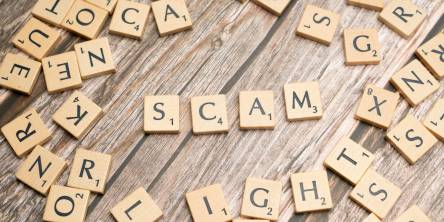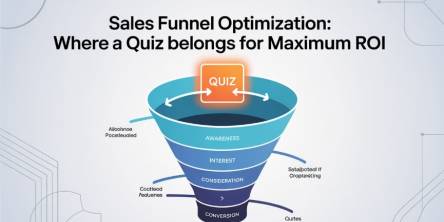These 5 Retail PoS Tech Trends are Driving Repeat Sales! Are You Leveraging Them?

The global pandemic has triggered a tidal wave of sales tech in the retail industry. With 2021 upon us, it’s high time retail merchants adapt to the latest retail trends for improved safety, convenience & speed of customer service. Blending technology with customer experience also makes it possible to manage relationships better and beat competitors!
For retailers looking to optimize each touchpoint, a POS system makeover is the best way to create new business opportunities. If you want to prepare for the new on-demand world now, then here are 5 POS trends that you need to implement.
- A POS System that Syncs Your In-store and Online Sales: With restrictions and safety norms making it a challenge to serve in-store traffic, an e-Commerce friendly POS system opens up new business opportunities. Many retail stores are already using e-commerce platforms to drive customer loyalty and sales. There is a growing demand for Retail POS solutions that integrate multiple sales channels that sync online and offline transactions and promotions and inventory. With a unified platform that hosts your online presence and also houses your accounting, you can ensure smooth operations on both sides of the screen. Whether you want to augment the shopping experience with a virtual fitting room or serve your shoppers with the click and delivery convenience, your website will be in complete harmony with your floor!
- Payment Options Aplenty: The global crisis has changed its payment preferences. Cash transactions have now been replaced with contactless mobile payments. With your target audience embracing the cashless trend, which may become irreversible, retailers must accommodate mobile payment options. This means that your traditional POS system will need to expand into a comprehensive solution that integrates a slew of flexible payment options to keep your customers safe and satisfied. POS can help you seamlessly integrate all the mobile, cardless, and contactless payment options into an iPad display or wireless tap-and-go tools while ensuring complete data security.
- Personalized Gifts & Loyalty Programs: Retail POS also lets you customize every element of the shopping experience. It gives you full freedom to get creative with incentives, offers & reward programs. By linking your stock with sales in a cloud-based platform, you can stay on top of every bundle, refund, return, and discount. A feature-rich POS solution will integrate payment gateways, loyalty programs, mobile apps, marketing and more to bring down the total cost of ownership. For instance, a cloud-based POS will allow your shoppers to redeem their rewards, place online orders & make instant payments. For retailers, they can then use their shopper’s purchase history information, buying patterns, and shopping preferences to create personalized marketing campaigns with the right incentives and maximize ROI.
- AI Integration: As online shopping gains popularity and preference, the bar for offering a personalized shopping experience has been raised further. AI-enabled POS systems can learn consumer preferences and personalize the shopping experience for them! Additionally, it can send instant alerts to customers about their information and prevent fraud. It can also track your customer’s buying patterns and help reduce inventory loss by identifying checkout errors. Having a fully-loaded POS system for your retail business means you can do much more than just managing and monitoring transactions. With retail POS, you can integrate it with your CRM platform and serve your customers better.
- Staff-Free Stores: Since social distancing is the best way to keep infections at bay, a staff-free and cashier-less store is a sure-fire way to increase footfall. With this shift in shopping preferences due to the global pandemic, POS is now leveraging technologies like facial recognition, RFID tags, IoT devices, and sensor fusion. Recently Amazon developed a pay-as-you-go system powered by computer vision and deep learning. It allows shoppers to make cashless payments without needing an app or account. This POS solution offers a touch-free shopping experience by scanning barcodes and QR codes and eliminates the need for human intervention and direct interactions in-store.
An Opportunity for Improvement
The retail world is revolutionizing and store owners have no choice but to adapt to the latest trends and evolve to accommodate these changes. Fortunately, development agencies can work with you and help you create a futuristic POS solution that efficiently caters to your unique business needs. Adaptability is the key right now & the right retail POS development partner can make this process painless and profitable!
Similar Articles
In 2026, Microsoft Excel continues to power the U.S. business ecosystem, supporting over 80% of financial modeling, 70% of operational reporting, and nearly 65% of analyst-driven decision workflows across enterprises.
The rapidly growing volume and speed of digital transactions have had a whole lot of implications for businesses
We live in the age of cloud computing. That's plain to see. However, what may escape many are the operational and financial challenges of managing multiple independent clusters.
Times have changed and how! Take modern technology and the fast-paced digital economy, it is driving. Given the market conditions, any company's infrastructure has become more than just a technical detail.
It has been for everyone to see that the modern digital economy is distinguished by high volume, real-time financial transactions.
Business success has become reliant on efficiency and agility of the underlying technology infrastructure. Clearly, companies now depend on cloud computing to provide seamless services while managing exponential data growth.
Hospitals operate in environments where availability and patient safety are paramount at all times. As medical supply chains expand and regulatory oversight becomes more demanding, manual tracking methods introduce delays and risk.
Every sales funnel has one core goal: turn attention into revenue as efficiently as possible. Yet many funnels leak value at critical stages—visitors bounce, leads go cold, and sales teams chase prospects who were never a good fit.
Decentralized Finance (DeFi) has transformed how users earn passive income through blockchain-based financial systems. Among its most popular use cases,









